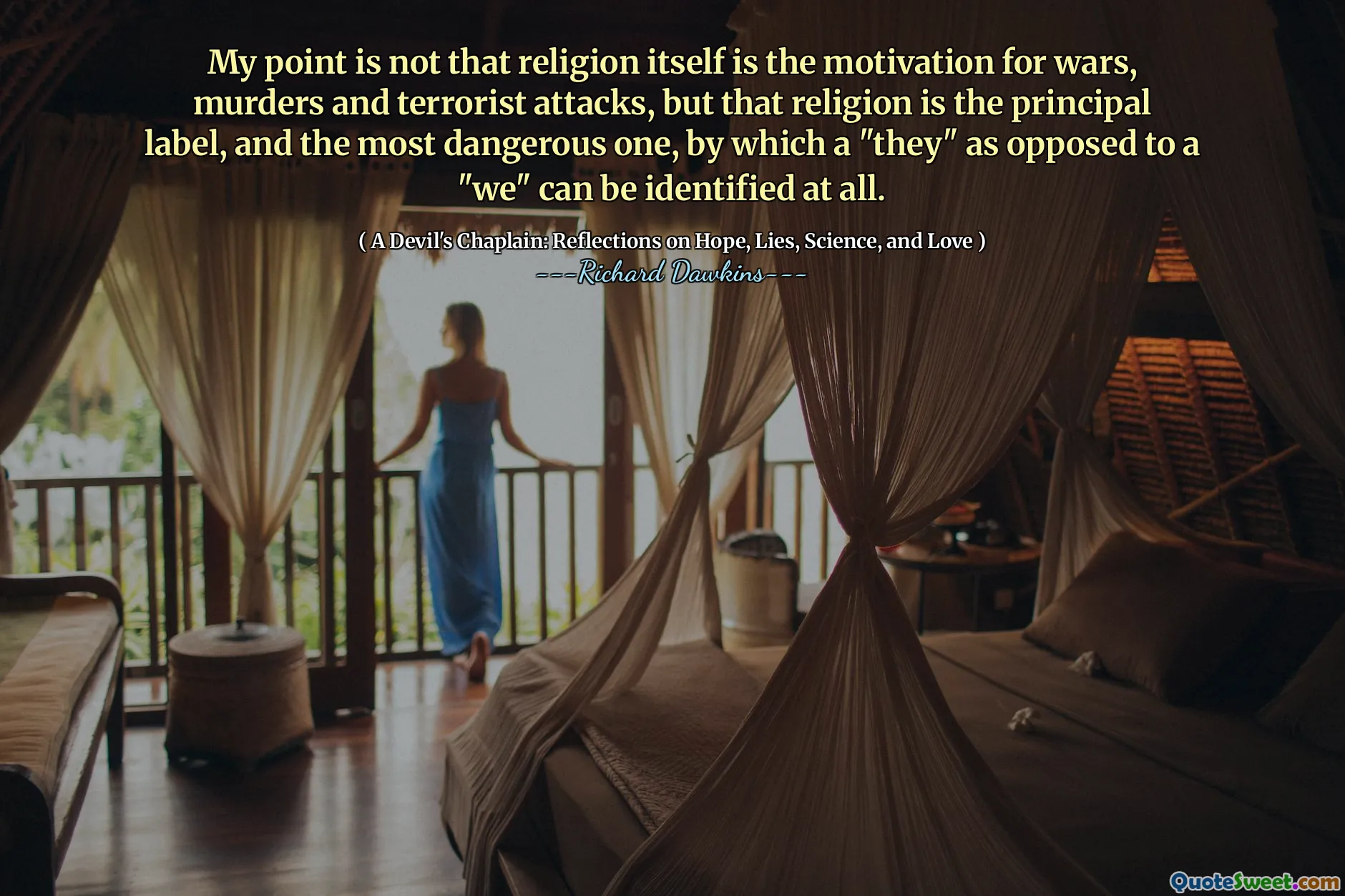
My point is not that religion itself is the motivation for wars, murders and terrorist attacks, but that religion is the principal label, and the most dangerous one, by which a "they" as opposed to a "we" can be identified at all.
This quote delves into the complex relationship between religion and acts of violence, emphasizing that while religion may not be the direct cause of conflict, it functions as a powerful social identifier. When groups define themselves through religious labels, it often fosters an us-versus-them mentality that can escalate tensions and justify harmful behaviors. The underlying issue is not necessarily the religious doctrines themselves, but rather how people interpret and deploy these labels to forge collective identities, often accompanied by exclusion, suspicion, and hostility toward those perceived as outsiders.
Throughout history, religion has played a dual role: it can be a source of comfort, community, and moral guidance, but it also offers mechanisms for division when boundaries are emphasized over shared human values. When religion becomes a marker of difference rather than a unifying force, it can inadvertently become a catalyst for conflict. For example, the word or label 'Muslim,' 'Christian,' or 'Jewish' can be weaponized to promote differentiation, sometimes fostering discrimination or violence.
This dynamic reveals a fundamental human tendency to seek belonging and certainty, often at the expense of empathy. By attaching a collective identity to religion, groups may defend their beliefs passionately, sometimes to the point of moral justification for aggressive actions against others who are deemed different. Recognizing this strategic role of labels can be a critical step toward fostering more inclusive societies that prioritize human commonality over divisive distinctions.
Overall, the quotation challenges us to rethink the narratives we associate with religious identity and encourages a focus on building bridges rather than barriers, especially when labels are used as tools for 'Othering.' It underscores the importance of understanding the social functions of religion beyond its doctrinal aspects, shedding light on how it can be misused to justify conflict and violence.






